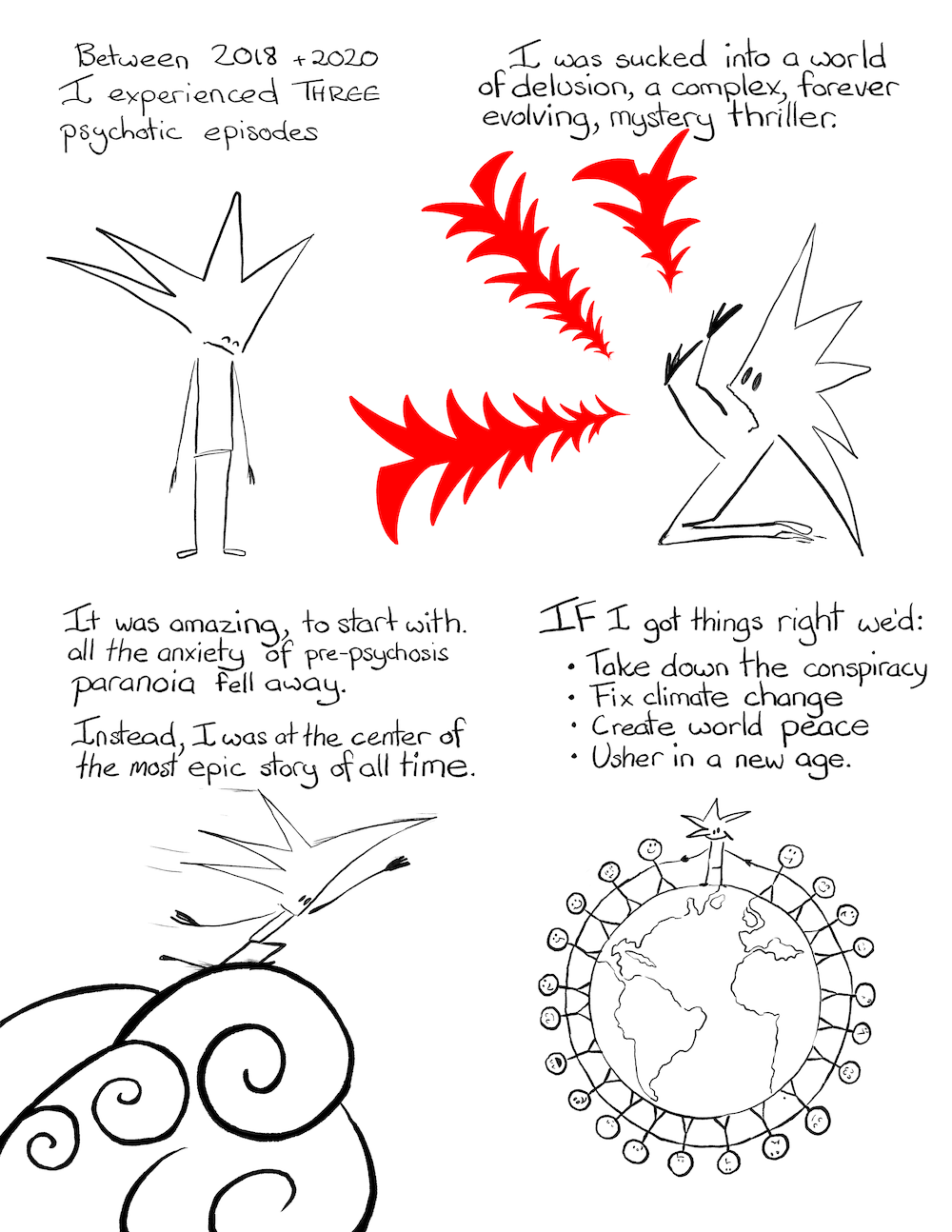A quick note (reducing stigma)
I’ve written, and abandoned, four different blog posts in the last few weeks! Each blog post fighting with itself as it was actually two or three blog posts.
So here’s a quick note that jumps straight to the point, plus the standard "Media I'm enjoying" section at the end.
Between 2018 and 2020 I had three psychotic episodes. It was terrifying, it caused me to doubt everything. It was isolating and it made me worry I’d never be able to hold down a stressful job again. In 2025, I’m in the best mental health of my life. I love the high stress work I do, and I feel joyfully connected to friends, community and my vocations.
Three in a hundred people will experience psychosis, but you wouldn’t know it based on what people are prepared to be open about. Autistic people are more likely to experience psychosis and are more likely to communicate their distress differently, which means that mental health professionals (not to mention friends and family) might not understand the level of trauma and impact.
This is a technical writing blog. If you’re not neurodivergent, you know people that are. I feel like neurodivergency is pretty neurotypical in technical writing circles! Our people are statistically more likely to go through psychosis, but those that do often brush it off and just get on with things.

Psychosis is a profoundly isolating trauma and the stigma makes it more isolating. I’m a cartoonist as well as a technical writer, so since 2020 I’ve been making art to help folks like me feel less alone and help their loved ones understand psychosis a little better. There are precious few psychosis survivors who are open about their experiences that aren’t folks with tenure, working in mental health fields or in extreme crisis. I want to help build a broader picture of what psychosis survivors look like.
I think it’s particularly important for our communities that have more neurodivergency, we need to look out for our people.
Whether you’ve been through it yourself, or want to understand something some of our people survive I encourage you read my comic in the Seattle Times, “A cartoonist’s experience with psychosis.”
Enormous gratitude to Taylor Blatchford, of the Seattle Times, for supporting me to tell my story.
Media I'm enjoying
- The Connector (Manny Frishberg), Ngombor, Hope in the Heart of Uganda
- Ngombor Community Development Alliance, the organization I've co-founded, in the news!
- Go to our GoFundMe for the latest updates, photos and to see how a donation can make a difference.
- Right now your donation will help pay for external windows and doors!
- Abby Covert, How to Make Sense of Any Mess
- Fundamentals of information architecture
- Some handy frameworks for dealing with "The moments where confusion, procrastination, self-criticism, and frustration keep us from changing the world."
- Hank Green, Don't Follow Your Dreams, Follow Your Tools | YouTube
- This is certainly how I'm as productive as I am, even with a disrupted career!
- Christina Mayr, How to "Let them" | Article
- It is so easy to get caught up in ALL THE THINGS when you're a technical writer
- Nataliya Kosmyna, Eugene Hauptmann, Ye Tong Yuan, Jessica Situ, Xian-Hao Liao, Ashly Vivian Beresnitzky, Iris Braunstein, Pattie Maes, Your Brain on ChatGPT: Accumulation of Cognitive Debt when Using an AI Assistant for Essay Writing Task | ArXiv paper
- This part is particularly pertinent when we often need to know our docs quite well and be able to bring them to mind when thinking about updates, "LLM users also struggled to accurately quote their own work."
- Docuwiz Podcast (Anurag Shukla), Interview with Diana Payton Blueprints for Scalable Documentation | Podcast
- Anurag has created a new podcast and I've been really impressed by how thoughtfully he puts together each interview. Full disclosure, I'll be in an upcoming episode!
- Not Boring Technical Writer (Kate Mueller), Kate sounds off on cognitive capital and learning | Podcast
- Write the Docs, Write the Docs Newsletter – September 2025 | Newsletter
- If you're interested in technical writing, subscribing to the Write the Docs Newsletter goes without saying. So much so that it's taken me this long to say anything!
Want to read more blog posts?
Subscribe to my newsletter to be emailed whenever I do an update!